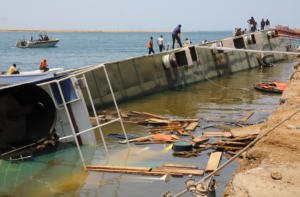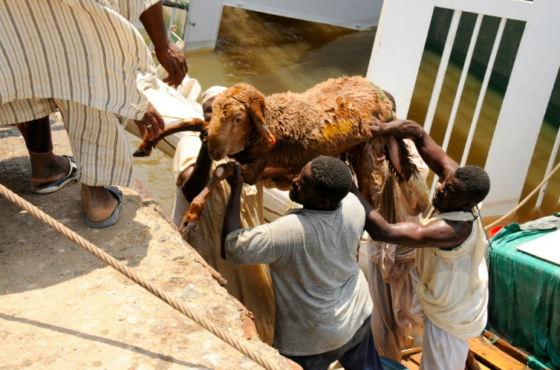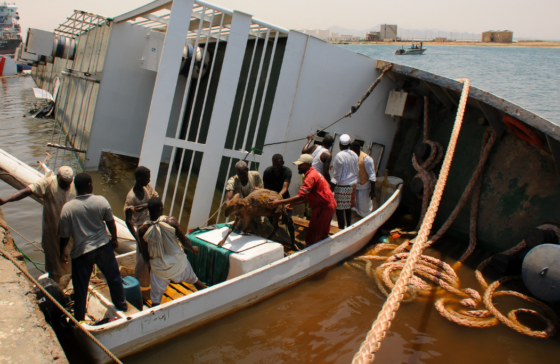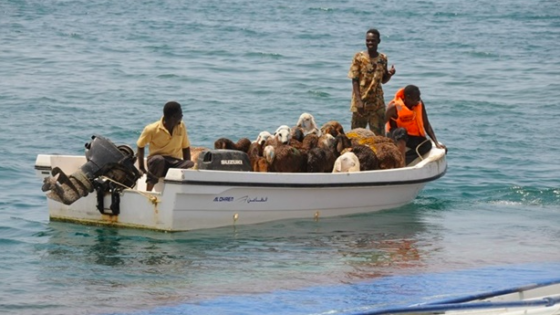
15,000 sheep drown after ship sinks in Sudan

A livestock vessel carrying thousands of sheep sank in Sudan’s Red Sea port of Suakin yesterday (12June22), drowning most animals onboard, but with all crew surviving.
“The ship, Badr 1, sank during the early hours of Sunday morning,” a Sudanese official told The Guardian. “It was carrying 15,800 sheep.”

“The sunken ship will affect the port’s operation,” another official says. “It will also likely have an environmental impact due to the death of the large number of animals carried by the ship”.
The total value of the lost livestock was around 14 Saudi riyals ($3.7m), says The Guardian.

Around 700 sheep were recovered. The ship remains partially above the waterline.
Unconfirmed reports suggest that the ship had nearly 16,000 sheep onboard, with the ship’s maximum permissible load being 9,000.
A livestock ship sank in an area near harbor entrance, while sailing off Sudan’s
— Saad AbedineSuakin port, carrying 16,000 sheep
A rescue team was dispatched to search for the ship’s crew membershttps://t.co/Y2Q7ldGquP https://t.co/zHtMBFnsBA pic.twitter.com/u8W75qlHmt(@SaadAbedine) June 11, 2022
الان من ميناء سواكن اللحظات الاخيرة لغرق باخرة البدري لصادر المواشي وعلي متنها 16 الف رأس من الضأن حيث ابتلعها البحر بالكامل.
— Salma | سلمى
لاحول ولاقوة الابالله pic.twitter.com/k56ZLUeg00(@salma1siddig) June 11, 2022

This is not the first incident of this kind. As reported by MIN, In February 2020, secret decks for extra animals were found in a livestock carrier that sank off the Romanian port of Midia in November drowning thousands of sheep.
Only 180 sheep survived out of the 14,600 initially believed to have been onboard the Queen Hind, which was carrying them from Romania, the EU’s biggest exporter of the animal, to Saudi Arabia.
After the Romanian incident, a leading shipping company claimed that the live export trade carrying millions of sheep and cattle across the seas each year is plagued by “old” and “inferior” ships that are a threat to animal welfare.
Main images courtesy of AFP.


